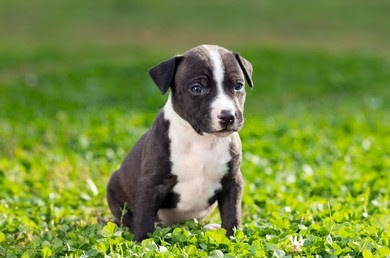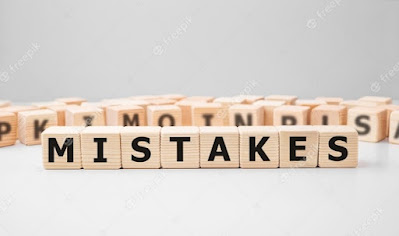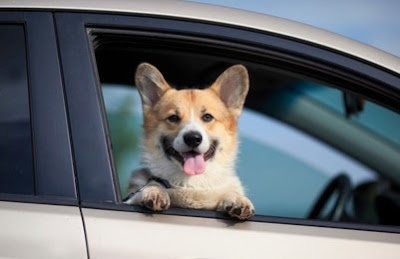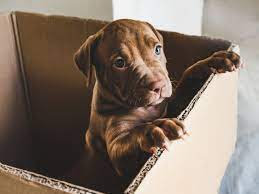New Puppy Advice
Most people begin to wonder, “What the heck have I gotten myself into?” about day three of life with a new dog.
When you bring a puppy home, you're met with unexpectedly extreme behaviour including as whining, biting, leaping, gnawing, and pooping on the carpet.
And if you've done any homework, you'll know that the first few months of a puppy's life are crucial for correct care and training. What your puppy goes through right now will have an impact on him for the rest of his life. Is there any kind of pressure or anything?
A puppy parent might become overwhelmed handling the puppy's destructive instincts, worrying about things like socialisation, and dealing with well-intentioned but sometimes wrong advice from friends, relatives, and TV shows.
So, to help you get through the next several months, here are some puppy advice in bite-sized chunks.
1.Get yourself a crate. It makes housetraining a lot less difficult.
2.At least for the first several nights, let your puppy sleep in your room. Because this is a frightening experience for a dog, it's better not to put him to sleep in the laundry room just yet. Place the crate by your bed to reassure him.
3.Your best buddy is a set of baby gates. Use them to keep the puppy away from areas you don't want her to wreck.
4.Surveillance, surveillance, surveillance! If you can't keep a close eye on him, he should be in his box or in his "chamber," as described below.
5. Create a puppy room for times when you are unable to oversee. Choose a small space, such as the bathroom or kitchen, and secure it with baby gates. In one of the corners, place a bed. Put pee pads or a dog "potty" in another room if you need to leave him home alone for longer than he can handle.
6. Choose a bathroom location. If you don't want Sparky to defecate all over the yard as an adult, designate one spot and take him there whenever he needs to go.
7. Create a daily schedule. If your dog understands what to expect from her day, house training will go more smoothly.
8. Look for local puppy socialisation programmes. Your puppy will learn some basic commands, but the true advantage of well-run puppy courses is the opportunity for socialisation with other puppies and adults.
9. Don't take everything you see on the internet at face value. Not all advice is helpful. Everything should be taken with a grain of salt. Even my suggestions!
10. Ensure that everyone is in agreement. Talk to the entire family about the puppy rules. Determine who will do what, when, and how. Choose a single set of training signals and adhere to them.
11. Engage in some puppy-training activities.
12. Don't foster bad habits that you'll come to regret when he's older. When Sparky weights 10 pounds, jumping up is adorable. When he's 60 pounds, it won't be as cute.
13. Begin handling your puppy from the beginning, softly caressing his or her feet, nails, tail, ears, mouth, teeth, and tummy with affection. Your veterinarian will appreciate it.
14. Begin grooming as soon as possible. For the same reason as previously stated.
15. Every day, introduce your puppy to at least two new (pleasant and kind) individuals.
16. Visit a pet store with your puppy. This is a fantastic chance for socialising. Until she's gotten all of her puppy vaccines, keep her in your arms and off the floor.
17. Expose your dog to a variety of new experiences. People wearing amusing headgear. Cars that can be controlled remotely. Children are having fun. Equipment for agility. Balloons. Cats. Car rides are fun.
18. Don't traumatise yourself by socialising. Slowly introduce new experiences to your dog so that he or she does not become overwhelmed. On read our beginner's guide to puppy socialisation, click here.
19. Host meet-the-puppy gatherings for friends and family.
20. Baby carrots make excellent teething nibbles.
21. Reward excellent conduct rather than waiting for undesirable behaviour to occur. When you observe the puppy doing something you like, give him a treat. Don't wait till he's misbehaving before you pay attention to him.
22. Stay away from the dog park. Many dogs in the dog park are extremely impolite by canine standards, which puts your under-vaccinated puppy at danger for illness. Your puppy's perspective of her own species might be ruined by a few negative encounters. Save it for until she's older and has had plenty of opportunities to socialise.
23. Get rid of the food bowl. Using food-dispensing puzzle toys to feed your puppy can keep her occupied (and out of trouble) for longer while also providing much-needed enrichment.
24. Gather whatever you don't want to be ruined. It will be eaten if it is on the floor.
25. Concentrate on what you want rather than what you don't want. Teach your puppy to sit while meeting visitors, for example. Don't just scream at her because she got up. In our Puppy Survival School curriculum, we offer a simple technique for this.
26. Keep an eye on your puppy's feces. Disgusting? Yes. However, it has the potential to save your puppy's life. Consult your veterinarian if you detect anything unusual, such as diarrhoea or blood.
27. Make sure there are plenty of toys. Get a few different kinds to discover which ones your dog prefers.
28. Make sure there are plenty of tasty chews available. Bully sticks, pig ears, and flavoured Nylabones are just a few examples. These will fulfil your dog's chewing urges while also reducing the likelihood of her chewing on your valuables.
29. Switch out the dog toys. Allow your dog to play with three or four toys at once. Sparky will remain engaged if the toy selection is varied.
30. Do you have an elderly dog or cat? Give them their own space away from the puppies. Everyone, including your existing pets, may find life with a new puppy to be stressful. Ascertain that they have the capacity to flee the craziness if necessary.
31. Don't be afraid to take your puppy outdoors if you believe he has to go pee! You'd be shocked how frequently pups need to go.
32. Get in some separation practise. Don't let Sparky stay by your side all day, no matter how enticing it seems. Allowing your puppy to spend time alone in his crate or room might help him avoid separation anxiety.
33. Don't go out and buy a high-end bed just yet. Your puppy's bedding will almost definitely get chewed up and/or peed on. At least until the puppy is a little older, use old towels or blankets that you don't mind being damaged.
34. Don't be too concerned if your puppy chews on you. Puppies are known to bite. It may be excruciating at times! However, it is not aggressiveness, and this stage does not persist indefinitely.
35. Use an enzyme-based cleanser like Nature's Miracle to clean up pet accidents. Other cleansers don't entirely erase the odour, so the dog may try to eliminate in the same location again.
36. Pay a visit to the veterinarian. When your dog doesn't have an appointment, take her for a walk. Bring some snacks and request some from the office staff. Make the veterinarian's office an enjoyable place to visit! (Please contact beforehand to confirm if this is OK)
37. As a general rule, a puppy's ability to "hold it" is equal to his age in months plus one. So, throughout the day, a two-month-old puppy should be crated for no more than three hours at a period. Puppies can generally hold it for longer while they sleep at night).
38.When you leave your puppy home alone, turn on the TV or radio.
39. Instill excellent leash etiquette in your children at a young age. It is preferable to educate your puppy to walk nicely on a leash than to teach your mature dog to quit tugging.
40. Keep in mind that your puppy is still a baby, so don't put too much pressure on her. Don't sweat it if she doesn't do a perfect sit/stay or heel. When she's older, there'll be plenty of time for that. Concentrate on socialising, relationship-building, and having a good time.
41.Take a lot of photos. Puppyhood, despite the fact that it appears to last an eternity when you're in the throes of sleep deprivation and toilet training, passes quickly. And when it's done, we always miss it.
42. Around the age of 6-10 months, your puppy will turn into a completely other type of annoying. Puppyhood isn't always easy, and adolescence may be considerably more difficult. Have a good time with your adolescent dog!
Mistakes New Puppy Parents Make
The pitter patter of fresh puppy paws, oh how I love it. Combine it with a new puppy's oh-so-sweet fragrance and the soft sounds of puppy snores, and you've got yourself a winning combination. These are the joys of having a new puppy to call their own for dog parents. However, difficulties might arise as a result of those beautiful times. Don't worry—we've got some fresh puppy advice to help you avoid some of the most typical pet parenting blunders.
It is critical that we treat our dogs with respect, yet there are some frequent blunders that new pet owners make when a puppy joins their lives. Here are eight typical puppy errors to avoid, as well as new puppy advice on how to rectify them:
Car Rides to the Veterinarian
If a puppy only sees the automobile when it brings them to the doctor for stressful things like injections or strangers touching and prodding them, he or she will unconsciously develop travel anxieties. Here's a fresh puppy tip that may be of assistance: Other than vet appointments, take your dog with you in the automobile. Take your dog to a park, a pet store, a friend's house, or a doggie play date. Praise your dog for being a good dog, and repeat the process when you get home.
Ignoring the Paws
If a puppy only sees the automobile when it brings them to the doctor for stressful things like injections or strangers touching and prodding them, he or she will unconsciously develop travel anxieties. Here's a fresh puppy tip that may be of assistance: Other than vet appointments, take your dog with you in the automobile. Take your dog to a park, a pet store, a friend's house, or a doggie play date. Praise your dog for being a good dog, and repeat the process when you get home.
Being a Loner
I didn't spend much time with other pets until I bought my first dog as an adult. Because she came into my life in December, the weather was cold and I didn't take many walks. My puppy was less than sociable when spring arrived, so we had to work on that. Puppies who are socialised early and exposed to a range of canines and settings are more likely to grow and learn to play nicely with others. Take it from me: you don't want to learn this new puppy tip the hard way.
Table Scrapping
Puppies are, without a doubt, cute. Yes, a toddler's babbling may be mesmerised by large brown dog eyes. But don't let it distract you from learning a new dog trick: Feeding a dog table scraps or “people food” of any type is not a good idea. One of the most difficult habits to break is this one. My last dog was a beggar, and she never "unlearned" her habit. Puppies pick up on early habits that might lead to greater problems later. The basic truth is that human food is harmful for dogs and can lead to a variety of stomach problems.
Wanting Them to Learn Fast
Here's a new puppy tip that any pet owner may benefit from: Patience is required. At eight weeks of age, the majority of puppies leave their littermates. With a new puppy, the first few weeks are a tremendous transition. Do not become irritated with your new dog. Puppies do not remain puppies for long, and dogs develop fast. Imagine you're a puppy, and everything you know is suddenly gone, from your siblings to your mother. I'd weep as well! Learn to be patient, and if you aren't, a puppy isn't the best decision for you.
Incorrect Reactions
Housebreaking a dog and teaching them to do their business outdoors is arguably the most difficult task most new pet parents encounter, and it's critical to understand how to deal with accidents. Never chastise a dog for peeing inside the home after it has already happened. It's no pleasure coming home to a dirty carpeting after a long day at work. It's not good for your dog if you yell or shout at him. Your dog simply understands that you've returned home and are being obnoxious. He's since forgotten about the puddle he created. Patience and realistic expectations are necessary once again.
Punishing
Physical punishment is ineffective. This isn't simply some fresh puppy advice; it's a fact. Unfortunately, I've seen similar conduct in public and addressed pet owners over the years. Using your hand(s) to discipline a dog is not only immoral, but it may also be highly detrimental to your connection with the dog. “When you strike a dog, you teach him to dread you, undermine his trust, and diminish his confidence,” positive reinforcement dog trainer Victoria Stillwell says in her book, “It's Me or the Dog.” Dogs who feel insecure are more prone to lash out in an aggressive manner.” Bullies inflict harm on both humans and animals. Take a lesson that teaches positive reinforcement with your dog.Pets should not be hit with punching bags.
Long Periods Alone
Dogs are pack creatures at their core. Many people consider dog crate training, as well as doggie daycare and pet sitting services. Puppies should not be given free run of the house since wandering eyes and brains can cause problems. For busy pet parents, here's a new puppy tip: Allow for bathroom breaks and engagement during the day by having a friend, family, or trusted coworker check on your dog. Using a box as a punishment is never a good idea. The puppy should regard their kennel as a secure refuge away from the stresses of the outside world. It is genuinely their get-away spot. Never leave a puppy alone for more than a few minutes.
One of the most rewarding aspects of being a new puppy parent is seeing your dog develop into a responsible canine citizen. Knowing what to expect and treating your new buddy with respect will result in a lifetime of great memories and moments shared together.




